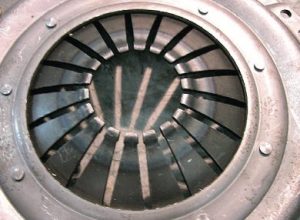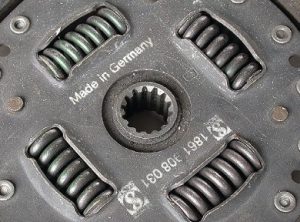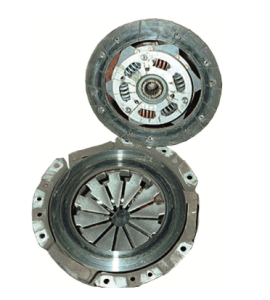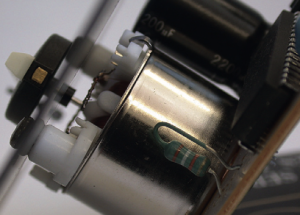When it comes to cars, there’s always room for improvement. Whether it’s for better performance or enhanced appearance, many car enthusiasts turn to “tuning” to modify their vehicles. Tuning a car involves making modifications to the engine, suspension, transmission, or other components to enhance its performance, power, and speed. In this blog, we will discuss what tuning a car does and the different types of tuning available.
What is Car Tuning?
Car tuning is the process of making modifications to a car’s engine and other components to enhance its performance, speed, and handling. Tuning can involve replacing parts, modifying existing parts, or adding new ones. Tuning can be done for different purposes, such as improving fuel efficiency, increasing horsepower, or enhancing the overall driving experience.
Types of Car Tuning
There are several types of car tuning, each with its own purpose and benefits. Here are the most common types of car tuning:
- Engine Tuning: Engine tuning involves modifying the engine to improve its performance and increase horsepower. This can be done by replacing the air filter, installing a performance exhaust system, or adding a turbocharger or supercharger.
- Suspension Tuning: Suspension tuning involves modifying the car’s suspension to improve its handling, stability, and ride comfort. This can be done by replacing the shocks, struts, and springs with higher quality components, installing sway bars, or lowering the car’s ride height.
- Transmission Tuning: Transmission tuning involves modifying the car’s transmission to improve its performance, shift times, and overall drivability. This can be done by installing a high-performance torque converter, upgrading the transmission fluid, or adding a shift kit.
- ECU Tuning: ECU tuning involves modifying the car’s engine control unit (ECU) to optimize its performance and improve fuel efficiency. This can be done by reprogramming the ECU with new software or installing a performance chip.
Benefits of Car Tuning
There are several benefits of tuning a car, including:
- Improved Performance: Tuning can improve a car’s performance, making it faster and more powerful.
- Better Fuel Efficiency: Tuning can also improve a car’s fuel efficiency by optimizing the engine and transmission for better fuel economy.
- Enhanced Handling: Tuning can improve a car’s handling, making it more responsive and stable on the road.
- Personalization: Tuning allows car enthusiasts to personalize their vehicles and make them unique.
- Increased Resale Value: Tuned cars are often more valuable and desirable, especially if the tuning was done by a reputable tuner.
Conclusion
Tuning a car involves making modifications to the engine, suspension, transmission, or other components to enhance its performance, power, and speed. There are several types of car tuning, each with its own purpose and benefits. Tuning can improve a car’s performance, fuel efficiency, handling, and overall driving experience. However, it’s important to choose a reputable tuner and make sure the modifications are done safely and legally.
Car tuning is a popular hobby among car enthusiasts who want to customize their vehicles and improve their performance. Tuning can be done on virtually any type of car, from high-end sports cars to more affordable models. It can range from simple modifications such as replacing the air filter or exhaust system to more complex changes such as engine swaps or turbocharger installations.
One of the most common types of car tuning is engine tuning, which involves modifying the engine to increase horsepower and torque. This can be done by replacing components such as the air filter, exhaust system, or fuel injectors, or by installing a turbocharger or supercharger. Engine tuning can improve the car’s acceleration, top speed, and overall performance, but it can also be expensive and can affect the car’s reliability if not done correctly.
Suspension tuning is another popular type of car tuning, which involves modifying the car’s suspension to improve its handling, stability, and ride comfort. This can be done by replacing components such as the shocks, struts, and springs, or by installing sway bars or a coilover suspension system. Suspension tuning can improve the car’s cornering ability, reduce body roll, and make the ride more comfortable, but it can also affect the car’s ride height and may require additional modifications such as wheel alignment.
Transmission tuning involves modifying the car’s transmission to improve its performance, shift times, and overall drivability. This can be done by installing a high-performance torque converter, upgrading the transmission fluid, or adding a shift kit. Transmission tuning can improve the car’s acceleration and make it more responsive to throttle inputs, but it can also be expensive and may require additional modifications to handle the increased power.
ECU tuning is another type of car tuning, which involves modifying the car’s engine control unit (ECU) to optimize its performance and improve fuel efficiency. This can be done by reprogramming the ECU with new software or installing a performance chip. ECU tuning can improve the car’s power and torque, as well as its fuel efficiency, but it can also affect the car’s emissions and may require additional modifications to meet local regulations.
Overall, car tuning can provide a range of benefits, from improved performance and handling to increased fuel efficiency and personalization. However, it’s important to choose a reputable tuner and make sure the modifications are done safely and legally. It’s also important to keep in mind that car tuning can be expensive and may affect the car’s reliability and resale value if not done correctly.
Advantages of Car Tuning:
- Improved Performance: Tuning can enhance a car’s performance by increasing its horsepower, torque, and acceleration.
- Personalization: Tuning allows car enthusiasts to personalize their vehicles and make them unique.
- Better Fuel Efficiency: Tuning can optimize the engine and transmission for better fuel economy, which can save money on gas.
- Enhanced Handling: Tuning can improve a car’s handling and stability, making it more responsive and stable on the road.
- Increased Resale Value: A tuned car can be more valuable and desirable, especially if the tuning was done by a reputable tuner.
Disadvantages of Car Tuning:
- Expensive: Tuning can be expensive, especially if it involves replacing components or installing new parts.
- Affects Reliability: Tuning can affect a car’s reliability if not done correctly. It can also void the manufacturer’s warranty.
- Legal Issues: Some tuning modifications may not be legal in certain regions or may require additional inspections or certifications.
- Affects Emissions: Tuning can affect a car’s emissions, which may result in fines or penalties.
- Safety Concerns: Tuning can affect a car’s safety if not done correctly. It’s important to choose a reputable tuner and make sure the modifications are safe and legal.
Overall, car tuning can provide a range of benefits, but it’s important to carefully consider the potential drawbacks and ensure that any modifications are done safely and legally.










